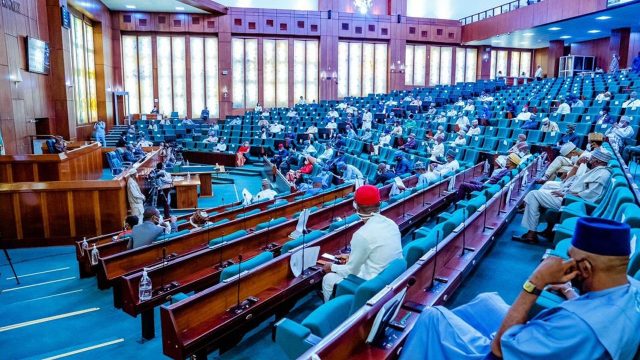The House of Representatives, on Tuesday, stepped down consideration of a bill seeking to repeal the Export (Prohibition) Act over ambiguities in the committee report presented for adoption.
The proposed legislation, which had passed its first and second readings and undergone a public hearing, was designed to provide legal backing for the growing cross-border movement of Nigerian food products, especially within the Economic Community of West African States (ECOWAS) region.
The legislation is titled “A Bill for an Act to Repeal the Export (Prohibition) Act, Cap E22, Laws of the Federation of Nigeria, 2004 and for Related Matters (HB. 2460)”.
The Export (Prohibition) Act currently bars the export of certain agricultural and raw commodities, including maize, rice, yam tubers, beans, cassava tubers, and timber, in a bid to protect local food supply.
The repeal would open up unrestricted export of such produce.
During the consideration of the report on the bill at the Committee of Supply, presided over by Deputy Speaker Benjamin Kalu, the lawmaker representing Wase Federal Constituency, Idris Wase, expressed concern that repealing the law at this time could exacerbate food insecurity, given Nigeria’s current production shortfalls.
He noted that the country is still heavily reliant on imports of staples such as rice and maize, and that removing restrictions would encourage mass exports and potentially drive up local prices, hurting consumers.
“My highest commercial aspect is farming, but I can tell you for free, sir, that today, Nigerian farmers are on the ceiling. We have not given sufficient incentive in that sector. That is why we are still importing some of these foods. As of today, we’re importing rice and maize due to a lack of sufficiency.
“By the time we open the window, I can tell you for free, we are going to cause problems for this country. I want to beg that we should reconsider this,” he said.
Chairman of the House Committee on Rules and Business, Francis Waive, while canvassing support for the bill, said the treaty obligations under ECOWAS had already facilitated the free movement of agricultural produce across West African countries, stressing that formal repeal would benefit Nigerian farmers.
He said, “If you go to Niger and Benue states, you will see trucks with Burkina Faso and Ghanaian registration numbers taking our food stock. This is already happening. Giving legal backing will help our farmers, make their produce competitive internationally, encourage production, and boost the agricultural sector.”
However, Agbedi Fredrick, representing Sagbama/Ekeremor Constituency, Bayelsa, faulted the presentation of the committee report, not
ing that it failed to clearly show what aspects of the law were being repealed or retained.
He said, “I think the worry, largely, I can express, is the way this report is carved. The bill says we are repealing. That is what the bill says.
“But here in this report, there is no indication as to what is being repealed and what is being retained. Ordinarily, we should have known what is being repealed in one column and what is being retained in the other column. This is so that we can match what is being repealed and what is being retained to confirm that the House has made the appropriate and right decisions. So this report is not tenable.”
Kalu, who presided over the session, ruled that the bill be stepped down following concerns raised by some lawmakers over the clarity and structure of the report.







